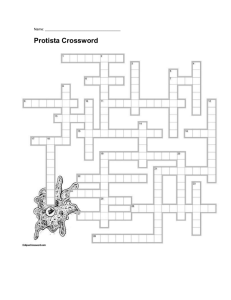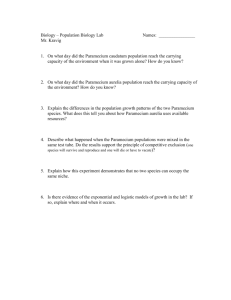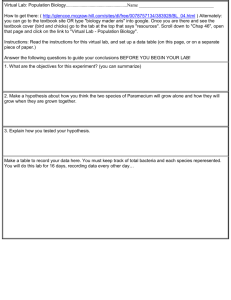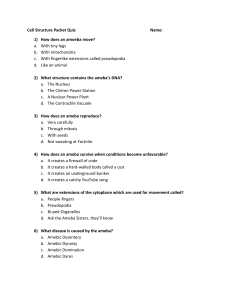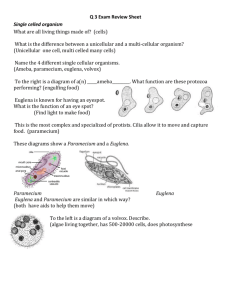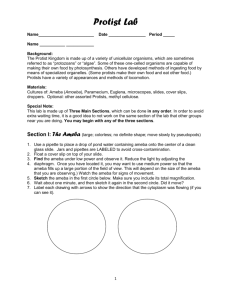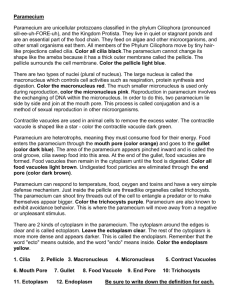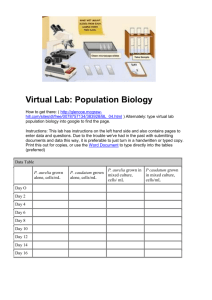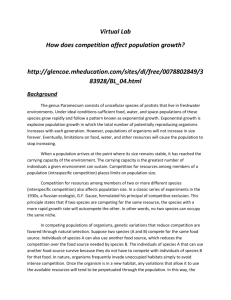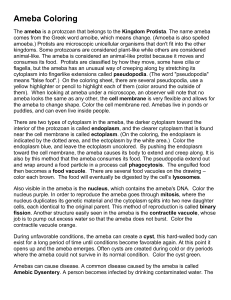Block_________ Comparing the Ameba to the Paramecium Virtual
advertisement
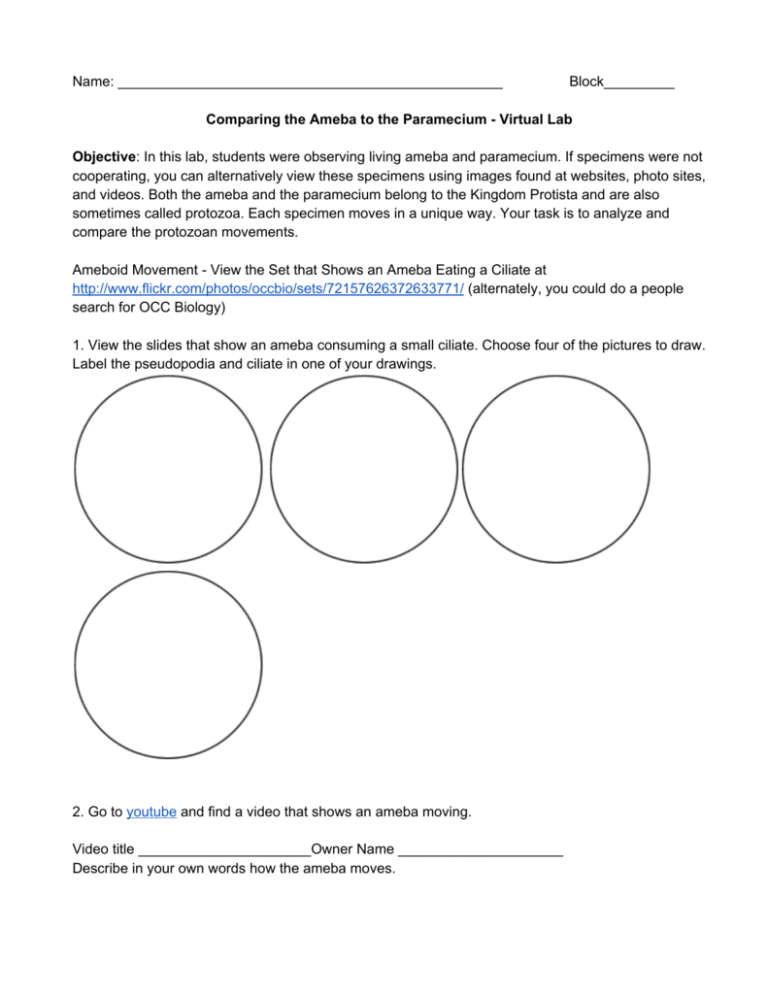
Name: _________________________________________________ Block_________ Comparing the Ameba to the Paramecium ­ Virtual Lab Objective: In this lab, students were observing living ameba and paramecium. If specimens were not cooperating, you can alternatively view these specimens using images found at websites, photo sites, and videos. Both the ameba and the paramecium belong to the Kingdom Protista and are also sometimes called protozoa. Each specimen moves in a unique way. Your task is to analyze and compare the protozoan movements. Ameboid Movement ­ View the Set that Shows an Ameba Eating a Ciliate at http://www.flickr.com/photos/occbio/sets/72157626372633771/ (alternately, you could do a people search for OCC Biology) 1. View the slides that show an ameba consuming a small ciliate. Choose four of the pictures to draw. Label the pseudopodia and ciliate in one of your drawings. 2. Go to youtube and find a video that shows an ameba moving. Video title ______________________Owner Name _____________________ Describe in your own words how the ameba moves. 3. Draw the ameba and label the: Endoplasm, Ectoplasm, Cell Membrane, Pseudopodia Paramecium 4. While at youtube, find a video of the paramecium. There will be many. Your goal is to locate a paramecium as it is moving, feeding, or responding to objects in its environment. 5. Describe how the paramecium eats and digests food: 6. Draw a paramecium. Label: Nucleus, Oral Groove, Cell Membrane, Cilia, Contractile Vacuole Analysis 7. Compare the movement of the paramecium to the movement of the ameba. 8. How are the paramecium and the ameba alike? 9. How are the paramecium and the ameba different? 10. Compare the shape of the paramecium to the shape of the ameba. College Readiness Standards­Science .I 16.2 Understand basic scientific terminology. I 16.3 Find basic information in a brief body of text. I 20.3 Translate information into a table, graph, or diagram. E 20.1 Select a simple hypothesis, prediction, or conclusion that is supported by a data presentation or model.
